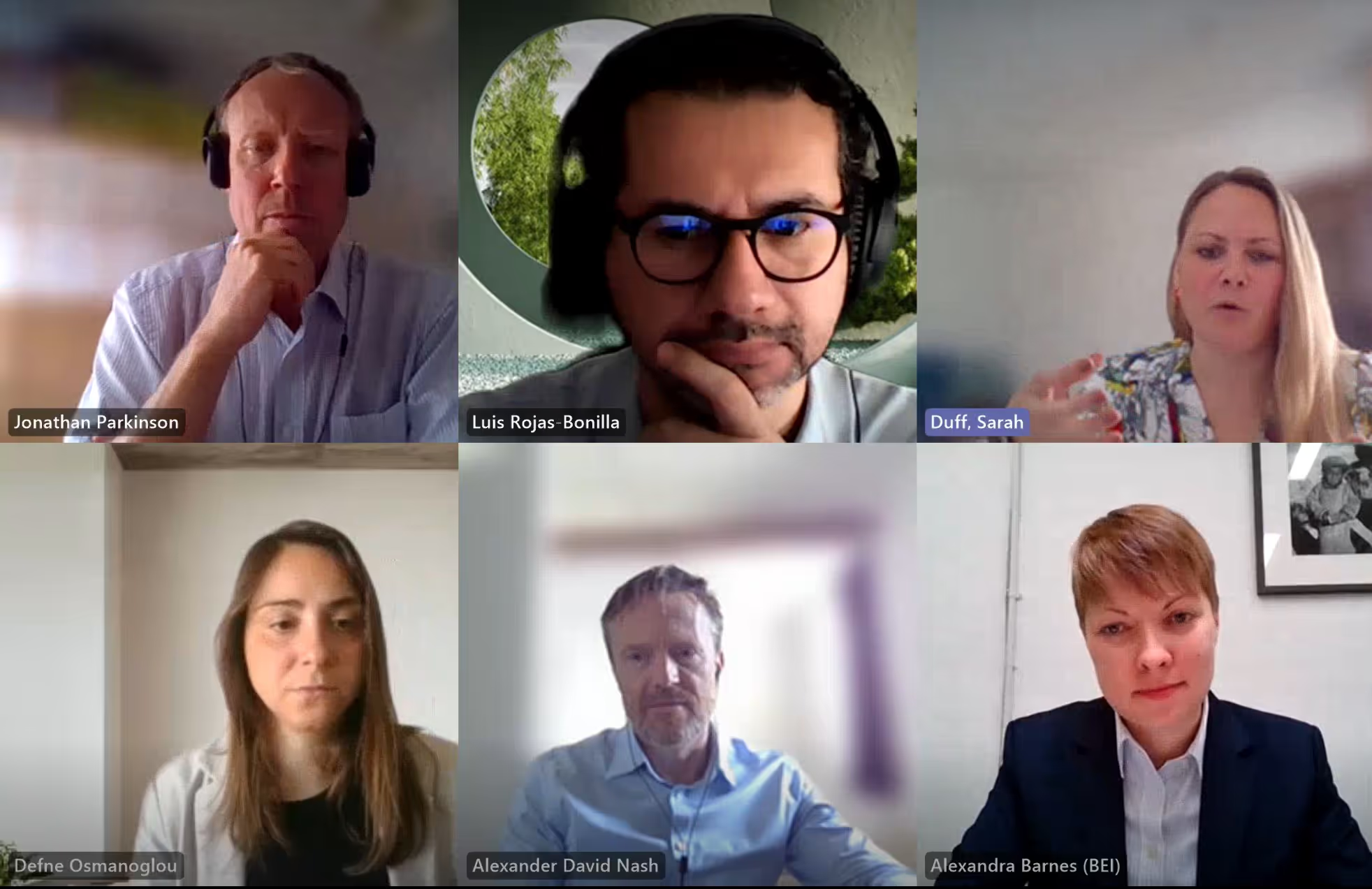On 11th July 2023, the British Expertise International (BEI) Nature-based Solutions (NbS) Working Group convened an on-line Stakeholder Roundtable focusing on NbS in urban settings. In addition to those that are within urban areas such as green roofs, urban wetlands, and rainwater harvesting, these also include NbS in peri-urban areas that benefit city life, such as catchment protection of a water supply. The economic value of NbS in cities can be expressed in different forms, for example in better quality of life or even in increased property values which can potentially be levied by municipalities.
The event was staged as part of a forthcoming BEI member publication entitled ‘Financing and Implementing Nature-based Solutions in Urban Areas - a Guide for Local Actors’, which is being prepared by DT Global with contributions from other BEI members. Dr Jonathan Parkinson and Luis Rojas Bonilla from DT Global presented the guide. They described the objectives and overview of contents, which form the basis of a three-stage process from scoping, feasibility assessment, followed by preparation of a business plan. The business plan is expected to be used to demonstrate the range of benefits, financial viability, operational sustainability, and ultimately to provide the rationale for investment.
The panel, which was chaired by Alexandra Barnes from BEI, included speakers from the Asian Development Bank (ADB), the European Bank of Reconstruction and Development (EBRD) and the World Bank. They explored how NbS can provide a range of co-benefits to municipalities in the Global South and how these can be financed and implemented. The speakers recognised that, although NbS have been around for a long time, it is only more recently that they have become widely recognised as a means to mitigate the impacts from climatic hazards, support biodiversity and mitigate climate change through carbon sequestration and use of green infrastructure.
The World Bank, which is recognised as one of the leading proponents of NbS in cities, provided examples of urban greening from the Central African Republic, DRC (Kinshasa), Sierra Leone (Freetown), and a wetland project in Rwanda (Kigali). The co-benefits associated with NbS are one of the main reasons why NbS are preferable to conventional solutions, but participants recognised that it is not always easy to quantify the co-benefits or to translate these co-benefits into more tangible monetary benefits. In addition, although co-benefits may result in a wide range of improvements for different stakeholders in cities, which may also result in cost savings, it cannot be assumed that the governmental authorities are in a position to levy higher public taxes to repay the investment.
The speakers from the development banks also provided valuable insights into constraints for scaling up the implementation of NbS. One of the primary constraints for NbS not being fully accepted is related to a more traditional mindset by practitioners and decision makers; reinforced by the fact that NbS are generally not taught as part of university curricula. In addition, engineering standards and building codes are often not framed to accommodate NbS. The banks reported that their clients raise concerns about perceived inherent risks in investing in green infrastructure compared with conventional grey infrastructure, which is believed to function more effectively over the defined lifespan of the project.
NbS are by nature more complex, involving a greater number of stakeholders and therefore project designs become inherently more complicated. Consequently, organisations that promote NbS need to be prepared to invest more time and resources for project preparation. In many instances, the integration of NbS into the design of a larger investment may provide the means to demonstrate the cost effectiveness and justify the additional resources needed.
The roundtable provided the opportunity to discuss these aspects as well as other feedback and suggestions from the panel, which will be taken on board for the final stage of the preparation of the forthcoming publication - to be launched in the autumn of 2023. For further information, contact Alexandra Barnes at BEI.
BEI members can view the event recording here.
Author: DT Global


.jpg)
.jpg)
.jpg)


